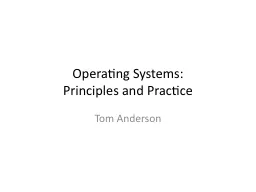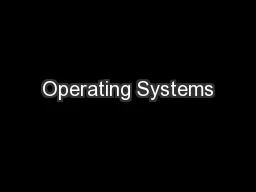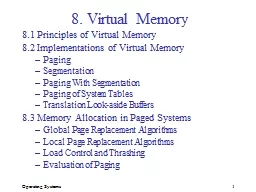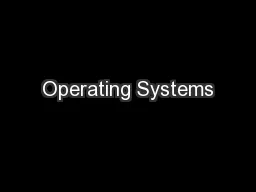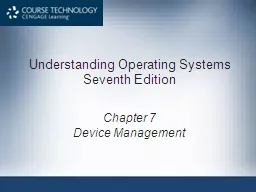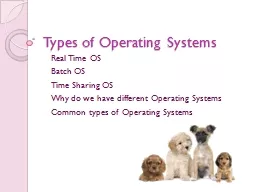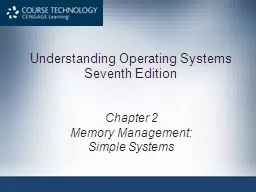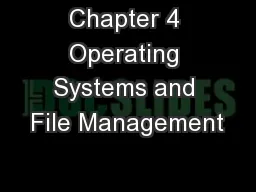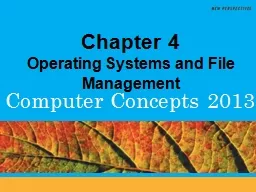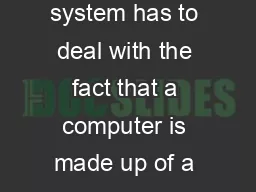PPT-CS162 Operating Systems and
Author : alida-meadow | Published Date : 2019-03-13
Systems Programming Lecture 11 Scheduling finished Deadlock Address Translation October 3 rd 2018 Nathan Pemberton httpcs162eecsBerkeleyedu Recap What if we Knew
Presentation Embed Code
Download Presentation
Download Presentation The PPT/PDF document "CS162 Operating Systems and" is the property of its rightful owner. Permission is granted to download and print the materials on this website for personal, non-commercial use only, and to display it on your personal computer provided you do not modify the materials and that you retain all copyright notices contained in the materials. By downloading content from our website, you accept the terms of this agreement.
CS162 Operating Systems and: Transcript
Download Rules Of Document
"CS162 Operating Systems and"The content belongs to its owner. You may download and print it for personal use, without modification, and keep all copyright notices. By downloading, you agree to these terms.
Related Documents


